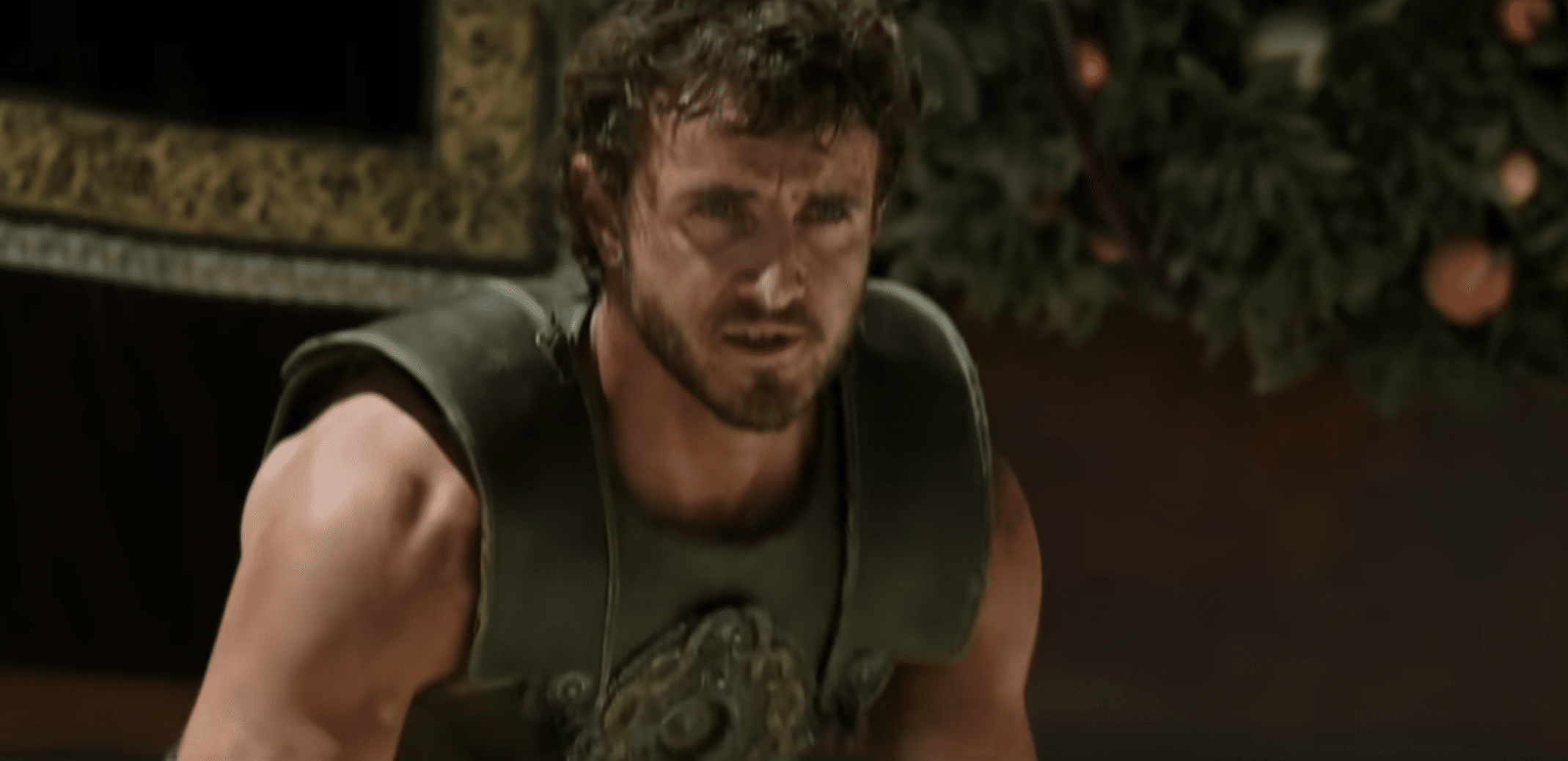Gladiator II: A flashy ‘sword-and-sandal’ sequel that lacked luster

The son also rises as Paul Mescal rules the arena in “Gladiator II.” Screenshot from the official trailer (Paramount Pictures)
One of the most baffling online trends that went viral this year is the “Roman Empire” meme. Swedish influencer Saskia Cort urged her followers to ask the men in their lives how often they think about the Roman Empire. I know, it gets weirder but stay with me. Based on the number of video stitches, men think about the ancient powerhouse. When the trend reached the susceptible shores of Twitter, a new meme was born. “My Roman Empire” refers to something you think about constantly. For example, “My Roman Empire is there was enough floating debris to save Jack and Rose in ‘Titanic.’”
Twenty-four years after we witnessed Russell Crowe’s Maximus Decimus Meridius conquer critics and audiences alike, his son Lucius Verus Aurelius (rising star Paul Mescal), follows in his footsteps to rebuild the “Roman dream” of his grandfather and former emperor, Marcus Aurelius. Social media screwed me badly because I was watching “Gladiator II” thinking, “So Lucius’ Roman Empire is the ideal Roman Empire.”
Dubbed the “philosopher-king,” Marcus Aurelius dreamt of a democratic republic to replace the authoritarian and corrupt Empire. In “Gladiator,” he chose Maximus as his successor because his son Commodus was unfit to rule. Of course, the dream died after Commodus murdered his father. Decades after his death, Rome is under the immoral control of emperor twins Geta (Joseph Quinn) and Caracalla (Fred Hechinger). Far from the empire, Lucius lives as “Hanno” in free Numidia. Like his late father, Lucius saw the Romans kill his wife, conquer his land, and make a slave out of him. Fate continues to echo the past as the cruel Macrinus (Denzel Washington) plucked him from hard labor obscurity and added him to his stable of gladiators. In the bloodthirsty arena, Lucius finds himself slowly fulfilling the dreams of his father and grandfather.
READ: ‘Wicked’ and ‘Gladiator II’ collide in theaters
READ: Pedro Pascal ‘begged’ Paul Mescal to go easy on him while filming ‘Gladiator II’
Ridley Scott, director and producer, conjured a less impressive sequel than his acclaimed “sword-and-sandal masterpiece.” A successful legacy sequel, a film that continues the story but takes place further along the timeline, builds on its predecessor and evokes a decent amount of nostalgia but stands on its own. “Gladiator II” beats in the same manner as its predecessor but with more computer-generated animals. Scott, an ambitious master of the art, has tendencies to lean on the ostentatious. Staging a naumachia or a naval battle inside the Colosseum is aspirational, but adding sharks is a bit much. But it is not the sharks nor the murderous apes that make the film questionable. These unrestrained choices expose the apparent hollowness of “Gladiator II” because the sequel is a simple replication instead of an eloquent reassessment of the past.
The brightest spot and the best reason to watch the film is Denzel Washington. “Gladiator II” boasts a brilliant cast: Paul Mescal, Connie Nielsen, Pedro Pascal, Derek Jacobi, and so on. But Denzel is an exceptional actor and a genuine movie star. Few things are more entertaining than a movie star who has reached a point in his career where he wants to have fun—and Denzel was having fun. Clad in robes and blinged out in hoops and multiple rings, Macrinus is a pompous entertainer and a scheming political puppet master. Like Lucius, he also has a dream: a new empire. This is where the problem starts: Denzel is such a force that I almost rooted for him.
Given his renowned appetite for work, Scott has hinted at the likelihood of “Gladiator III.” If it comes to fruition, I hope the third one rises to the challenge of a more substantial sequel. I do not think about the Roman Empire, but it is interesting to see a lost prince seeking to restore the dreams and ideas of a philosopher-king. It is sometimes more worthwhile to dream in the fictional world considering our reality.